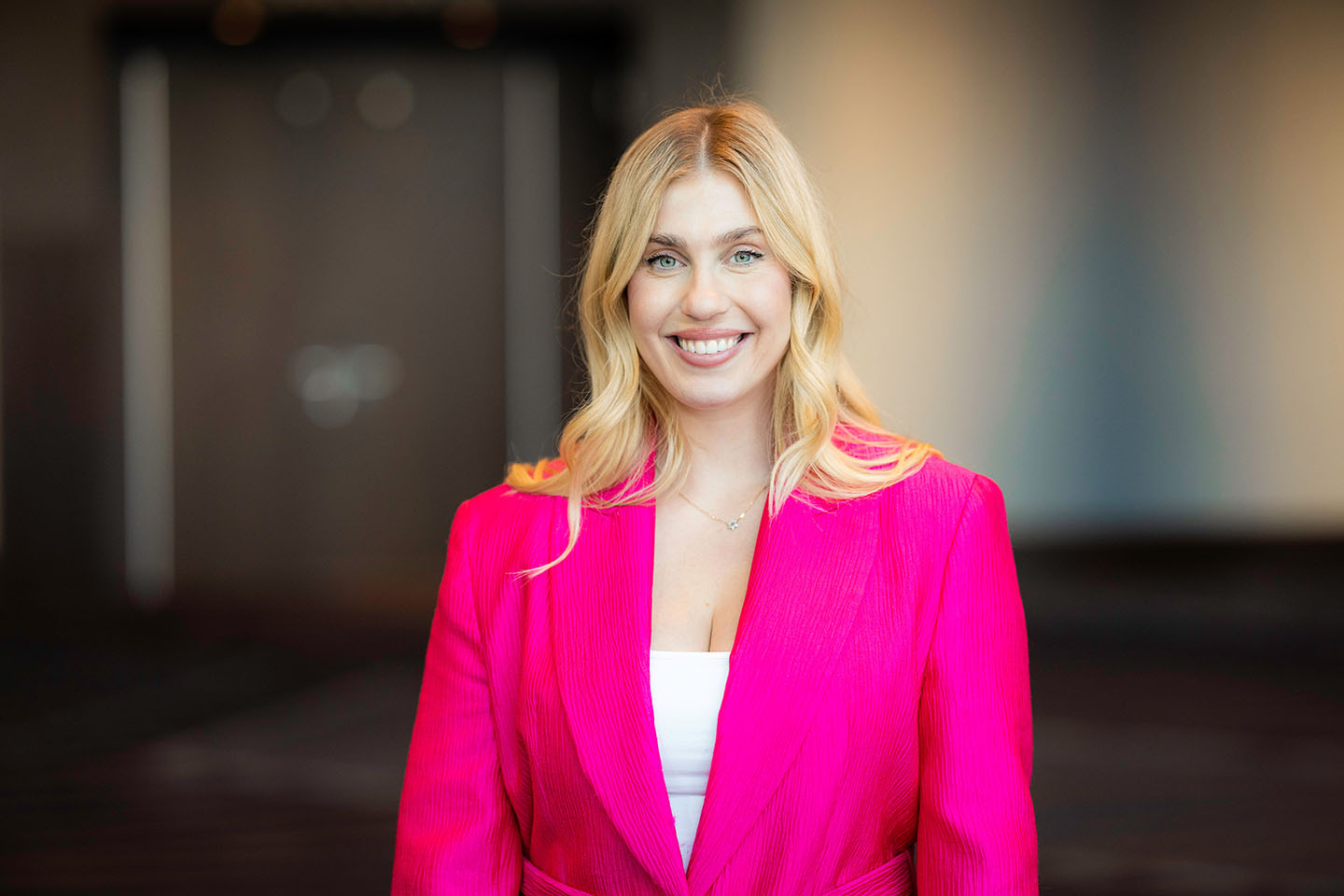Maya Vorobyov grew up in Ramle, Israel, a mixed city with both Jews and Arabs. Her parents were immigrants from the Soviet Union, and her grandparents were Holocaust survivors.
After studying at Reichman University, she left home to work as The Jewish Agency’s Israel Fellow at the Hillel Foundation of Orange County, which is where she first experienced antisemitism. A group of Students for Justice in Palestine attacked Jewish students, and Vorobyov witnessed the kind of hate that Jews in the diaspora were up against.
Now, fast forward a few years, and Vorobyov is the executive director at TalkIsrael, a nonprofit that aims to positively change the conversation about Israel amongst U.S. Gen Zers by harnessing the power of social media.
“We empower emerging content creators with the skills, tools, and confidence to share impactful narratives about Israel,” she said. “Through free workshops, bespoke programs, personal mentorship, and influencer collaborations, we cultivate voices that drive change. Our research-backed content, created with our creators, ensures every post improves Israel’s online perception. Together, we’re transforming how the next generation sees and discusses Israel.”
“Together, we’re transforming how the next generation sees and discusses Israel.” Maya Vorobyov
The organization, founded in 2022, features a Creator Council, where young people on social media join a community of like-minded pro-Israel peers and receive resources and mentorship on being activists online. The 14 creators who are part of it grew their combined audience from 331,000 followers to 616,500 followers and counting, reaching 259M+ views on TikTok and Instagram.
“[We’re] providing ongoing mentorship and training to help them craft compelling content,” Vorobyov said. “We partner with leading pro-Israel social media influencers and organizations to amplify empowering narratives.”
 For example, Chelsea Jacobson, who has nearly 30,000 followers on Instagram, makes funny and relatable videos on Israel. In one, she talks about meeting the love of her life, the guy who interrogates you before they let you on the plane to Israel. “I have never had a guy ask me that many questions about myself… and he really listened!” she says, while wearing a hat with the hostages symbol on it. She also films herself traveling throughout Israel, from the beaches of Tel Aviv to the Kotel.
For example, Chelsea Jacobson, who has nearly 30,000 followers on Instagram, makes funny and relatable videos on Israel. In one, she talks about meeting the love of her life, the guy who interrogates you before they let you on the plane to Israel. “I have never had a guy ask me that many questions about myself… and he really listened!” she says, while wearing a hat with the hostages symbol on it. She also films herself traveling throughout Israel, from the beaches of Tel Aviv to the Kotel.
“I started posting about Israel after the Columbia encampments because I was in grad school at Columbia and things were so intense there not saying anything felt inauthentic,” she said. “TalkIsrael also showed me that I could post about Israel and just being a Jew without it being necessarily political.”
While the response to her posts has been mixed, she has gotten some hopeful messages that show her she’s making a difference.
“I have received DMs from people who do not know much about Israel and after seeing my posts start to do more research of their own,” she said. “Then naturally, I think their views shift, and they begin to consider the possibility that Israel is not the single most evil entity in the history of man. People can only be as reasonable as the information they’re getting and most people online get a very, very narrow set of information. When I post people chanting intifada from Columbia and even one follower goes and googles ‘intifada,’ I think that’s a huge win.”
TalkIsrael specifically focuses on Gen Z because they are more prone than other generations to seeing misinformation about Israel and the Jewish people.
“Only 41% of young adults ages 18- 29 have a favorable view of Israel, compared to 69% of people 65 and older,” said Vorobyov. “A recent New York Times survey showed that just 27% of Gen Z say they support Israel. But I don’t think this means Gen Z is naturally ‘anti-Israel.’ What it really shows is that most of the information they see comes from social media, where negative and misleading content about Israel spreads very quickly. They are simply growing up in a different information space than older generations.”
Though many young people have a negative view of Israel, that doesn’t mean it’s time to give up the fight. Instead, Vorobyov and her team are more motivated than ever.
“Social media is already overtaking traditional media… In fact, 73% of Gen Z say they’re getting their information about Israel on social media platforms like TikTok and Instagram, and the number is growing daily,” she said. “On these platforms, 89% of respondents said that the content they are coming across is primarily focusing on news and politics. That’s why we believe it’s so important to invest in social media. It gives us the ability to reach this audience where they are, and to broaden the narrative by showcasing the personal, cultural, and everyday aspects of Israel.”
She continued, “When we highlight real stories, lifestyle, food, innovation, and creativity, we’re able to connect with Gen Z in a way that feels authentic and relatable. And that’s where meaningful change happens.”




